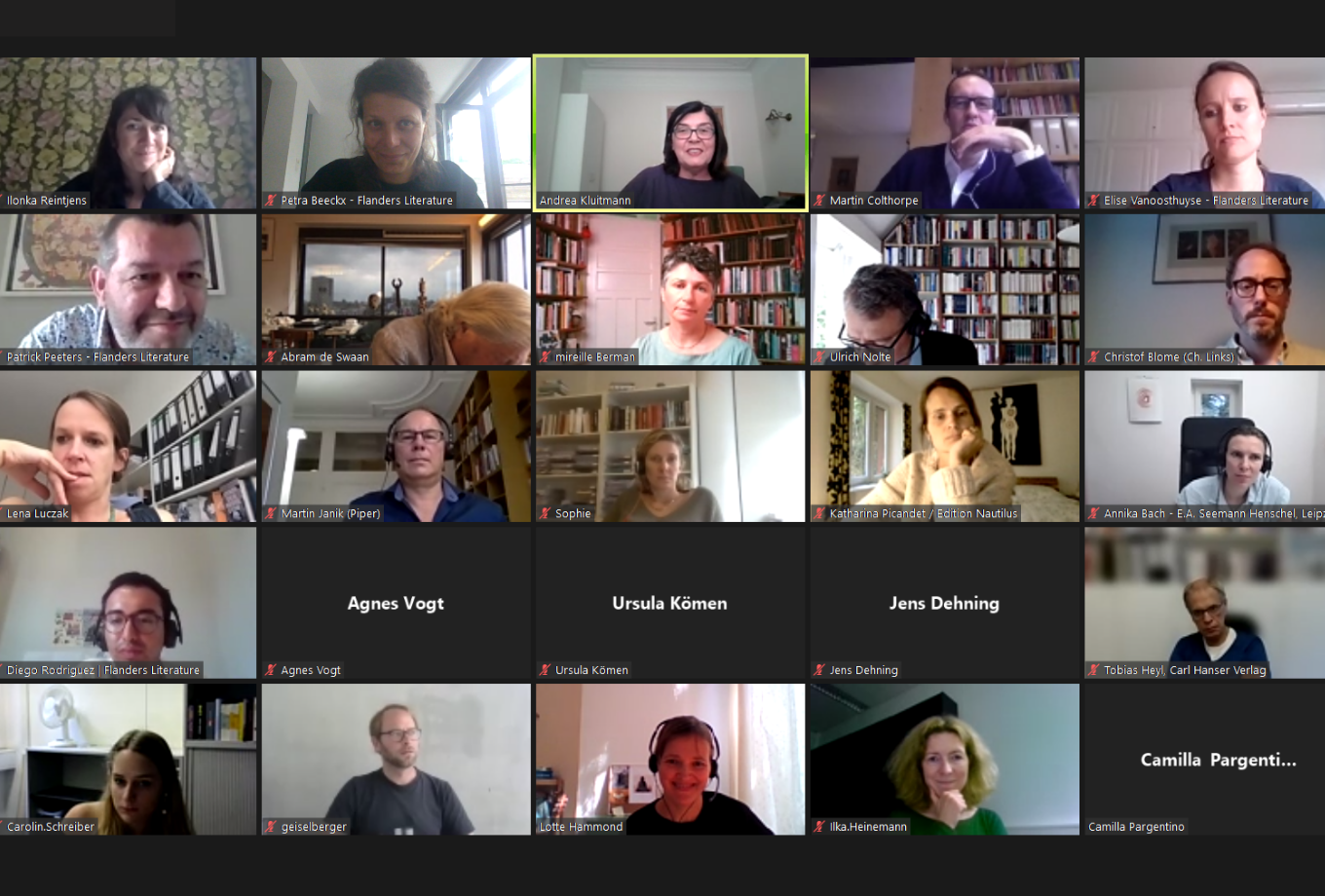German publishers are eyeing non-fiction from the Low Countries
German publishers are following non-fiction literature from the Netherlands and Flanders closely. This was clear once again on Wednesday 15 September, during an online meeting organized by Flanders Literature and the Dutch Foundation for Literature. No fewer than twenty-four screens appeared in Zoom with representatives of both the major publishers and independent houses. The selection of new publications that representatives Patrick Peeters and Mireille Berman brought to the fore were enthusiastically received.

Varied programme
Translator and moderator Andrea Kluitman gave everyone a warm welcome from the Translators’ House in Antwerp. Then Jan Konst, writer and specialist in Dutch-language literature, kicked off the session. His introduction to the genre, an overview of 500 years of ‘true stories well told’ in the Low Countries, made a particularly strong impression when he examined the latest sales figures. They show that Dutch bestsellers in the non-fiction category are outperforming bestsellers in fiction. Furthermore, books like 'Humankind' by Rutger Bregman are breaking records even outside their own language.
‘Whether that will be reflected in sales abroad is always a matter of wait and see. But it does indicate that author-driven and creative non-fiction have risen in popularity.'Patrick Peeters - Grants Manager Non-fiction
Under the heading of ‘decolonization’, literary translator Lotte Hammond presented five books from Flanders and the Netherlands. She spoke for example about the success of the reissue of 'We Slaves of Suriname' by Anton de Kom. Nadia Nsayi’s 'Daughter of Decolonization' was also placed in the spotlight.
The extensive oeuvre of Dutch author and sociologist Abraham de Swaan received attention too. It has been translated into twelve languages but oddly has yet to be published in German. The author threw light on two of his titles, including 'Against Women', about how women are discriminated against to this day.
A short video was used to highlight Matthias M.R. Declercq's fascinating 'Urk'. For six months he immersed himself in the closed community of the Dutch village Urk. In the book of the same name he describes how, during this sociological-anthropological experiment, he gained the trust of the population and discovered the secrets of this society.
Literary organizer Martin Colthorpe (UK) ended a description of his experiences with the project New Dutch Writing by appealing for non-fiction to be on the programme in all its many forms; both niche and more general themes sometimes do surprisingly well. In the British book sector, where fiction generally finds greater appreciation among the public, that says a great deal.
Lastly the German publishers were given an introduction to 'Crumbs of Comfort' by Hind Eljadid and her sister Fatima-Zahra Eljadid. As Mireille Berman said, ‘It’s striking that many young female authors have been active in non-fiction recently, with personal stories that offer critical reflection on our social and cultural context. 'Crumbs of Comfort' is particularly special because its style defies categorization. The way it switches between prose and poetry, the inclusion of illustrations and the authors’ youth challenge the genre.’
